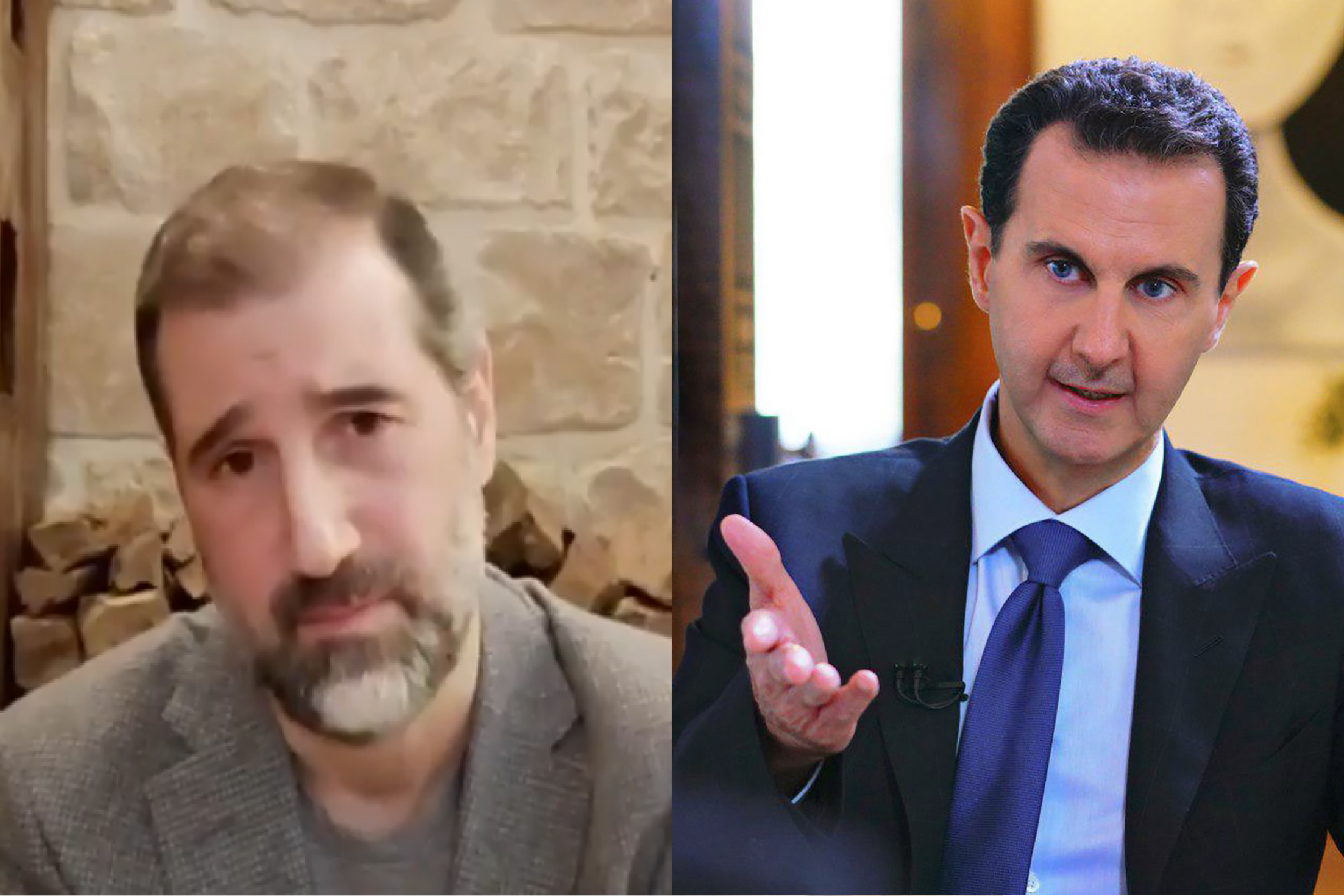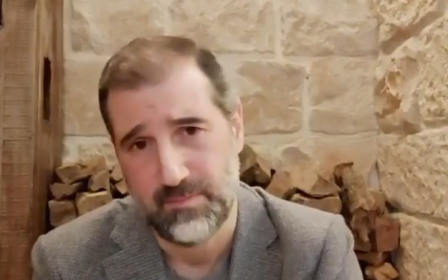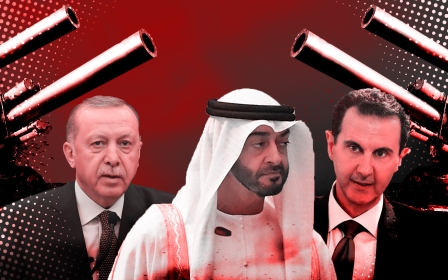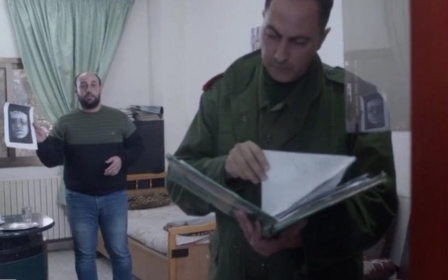EXCLUSIVE: Rami Makhlouf still in Syria despite spat with Assad

Syrian business tycoon Rami Makhlouf remains at one of his homes in Syria, despite publicly criticising President Bashar al-Assad in a rare display of dissent by a key member of the country's ruling family, Middle East Eye has learnt.
Makhlouf, who is also Assad's cousin, is considered one of the Syrian president's inner circle and controls a web of companies working in oil, construction, banking, airlines and telecommunications that have earned him a fortune estimated to be worth billions of dollars.
On 30 April, Makhlouf posted a video on his Facebook page, complaining that the Syrian government had threatened him over multi-million dollar tax payment and telecoms licencing demands, and reminding Assad of his financial support and charitable work during the nine years of civil war in Syria.
Reportedly, the Syrian authorities then arrested a number of Makhlouf’s senior employees in the telecommunications giant Syriatel, which dominates the country's mobile phone market.
Makhlouf responded with a second video complaining about the “inhumane way” in which the arrests had been carried out.
New MEE newsletter: Jerusalem Dispatch
Sign up to get the latest insights and analysis on Israel-Palestine, alongside Turkey Unpacked and other MEE newsletters
'I know Makhlouf personally, and he does not dare to challenge the Syrian state, which makes me wonder, why is he doing that?'
- Source
A source with knowledge of the internal politics of the Syrian government and Assad clan told MEE that Makhlouf was still at one of his villas in Syria, despite some reports that he was suspected to have gone to the United Arab Emirates.
The source also said they believed the case was more complex than an episode of "in-fighting within Assad's inner circle".
They suggested that Makhlouf could be part of a broader intrigue in which he was being used either by one of Damascus's allies to increase pressure on the government to accept a political settlement to end the country's war, or by Damascus to counter that pressure.
“For now, Makhlouf remains in Syria and he was not arrested,” the source said.
“I know Makhlouf personally, and he does not dare to challenge the Syrian state, which makes me wonder, why is he doing that? You are talking about a dispute of $200m, which is peanuts for Rami, whose fortune is worth billions of dollars.”
He pointed out that Makhlouf’s children owned assets including villas, cars, and jets in the UAE that alone were worth “close to the amount the Syrian state is asking him to pay".
Makhlouf's sons, Mohammad and Ali, have become notorious symbols of the lavish excess associated with the family.
In April, Instagram apologised for featuring footage of Mohammad Makhlouf celebrating his birthday in self-isolation as part of a feature on the coronavirus pandemic.
'Only money'
Earlier this month, Syria’s Ministry of Communications and Technology issued a statement ordering Makhlouf’s Syriatel and MTN telecoms companies to pay licence fees of 233.8bn Syrian pounds ($455m) for the period between 2015 and 2019.
It added that Syrian tax authorities were pursuing a separate case against the telecommunications companies for tax evasion.
Kamal Alam, an analyst with knowledge of the Syrian government’s dynamics, told MEE that Makhlouf could be arrested if his criticisms continue.
“They'll have a word with him… but I do not think they will arrest him publicly now, as it is too early,” Alam said.
“But if he keeps posting on social media and doesn’t pay the money, they will do and they could take his assets, which will strip him of his influence.”
'They'll have a word with him … but I do not think they will arrest him publicly now, as it is too early'
- Kamal Alam, analyst
Alam played down suggestions that the Assad-Makhlouf spat shows greater divisions within Syria’s ruling establishment.
“The Syrian government does not allow you to be stronger than it, and Makhlouf has only money. There are other people who have money in Syria, not just him,” he said.
“He has no position in the army or popularity - the army and the intelligence are the most powerful institutions in Syria.”
Remaining in Syria during this row could be Makhlouf’s best way of securing his future in the country, Alam said.
"If he leaves the country on holiday, it will be fine. But if he left it over this dispute, it will be the end, and he will not be allowed back to Syria again."
Makhlouf is reported to have controlled about 60 percent of the Syrian economy before war broke out in 2011 and his wealth has been estimated at $5bn.
He has been put on a US sanctions list for supporting the Damascus government and was described as "Syria's poster boy for corruption" in a January 2008 State Department cable.
Last month, Saudi Arabia uncovered a stash of 44.7 million amphetamine pills, known as "captagon", that was being smuggled into the kingdom from Syria in cargo bearing the logo of one of Makhlouf's companies.
The crackdown on Maklouf's empire comes as part of an anti-corruption drive by the Syrian government, as Syria's economy reels from nine years of war, severe sanctions and a Lebanese economic crisis next door.
“Pursuing Makhlouf is part of this campaign, which will do good for Bashar al-Assad’s public image, as he will appear to be fighting corruption and show that no one is above the law, including Makhlouf,” Alam said.
This article is available in French on Middle East Eye French edition.
Middle East Eye delivers independent and unrivalled coverage and analysis of the Middle East, North Africa and beyond. To learn more about republishing this content and the associated fees, please fill out this form. More about MEE can be found here.




